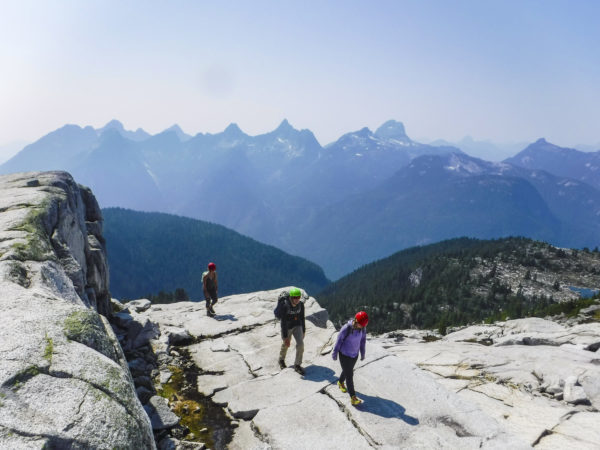 One of the greatest struggles of Outdoor and Experiential Education is working to explain to others the benefits and outcomes for students learning in these types of environments. Often this industry must turn to studies, surveys and personal accounts as a means of delivering “results” to parents or prospective students. But beyond these studies and quantifiable facts are more interpersonal results that are hard to set to data points or graphs.
One of the greatest struggles of Outdoor and Experiential Education is working to explain to others the benefits and outcomes for students learning in these types of environments. Often this industry must turn to studies, surveys and personal accounts as a means of delivering “results” to parents or prospective students. But beyond these studies and quantifiable facts are more interpersonal results that are hard to set to data points or graphs.
At Eagle’s Nest Foundation, our focus is on educating the Whole Child and our wilderness programs allow us to incorporate many of the educational pillars of our teaching philosophy into real life, natural consequence learning moments. A large aspect of our program focuses on community and intentional living. With trips like backpacking or paddling, participants are challenged to work together in ways the positively support and uplift one another. Typical everyday tasks, like basic communication skills, are put to the test when navigating rapids, or even the best way to cook backcountry curry. Where participants would normally have the ability to dry off in the dorm or cabin after a rain event, the backcountry participants are challenged to think through every aspect of how they will take down a tent without swamping their sleep systems. Beyond this level of heightened consequence and challenge for thought and follow-through, participants learn what it truly means to perform a task to a level of expertise that shows mastery and craft.
Instructors with Eagle’s Nest focus on the development of participants both in their technical skills and their interpersonal growth. We have come to learn that by supporting youth in their basic needs, as outlined by Maslow, we can set a basis of support that allows participants to step beyond their comfort zone and fail, with the knowledge that our staff and instructors are there to help guide the experience in a positive way. In many ways, we feel that the backcountry is the ultimate test to the participants’ ability to show that they have learned and mastered skills. This is the environment where consequences are magnified, and dynamic aspects like weather, environment and the rigors of constant contact with the group allow the individual to develop tolerance for adversity and a greater intrinsic desire for success.
As an integral part of Eagle’s Nest’s mission, taking you into the backcountry identifies many important principles of wilderness programming that help us meet our educational goals.
When looking at a trip like Hante Rocks and Rivers, it is near impossible to imagine all the educational opportunities available to participants. Over the course of the 3-week adventure, participants learn the basics of camping skills like cooking and campsite setup, while also being challenged by more technical skills involved with whitewater canoeing or rock climbing. Then, as they begin to master basic camping skills, those skills are put to the test as they move their group into backcountry travel, or whitewater canoe trekking.
It is through this connection to one another and the outdoors that will help participants grow to appreciate the natural world around them, and work to preserve these spaces for future generations.
By Marlin Sill